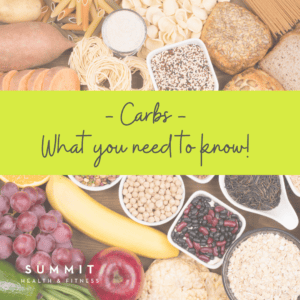Just because someone knows how to create a nutrition plan or macro prescription for you does not mean they are a good coach.
Ok so maybe there is a little bit of bait here in my title. But to be honest I’m sharing some challenging and vulnerable feelings here.
1- We are worth EVERY PENNY we charge. Going into my personal fat loss journey I was contemplating adjusting our pricing at Summit health. The economy is tumultuous, we want to help as many people as possible and health coaching can be expensive. I was starting to feel like we needed to adjust our monthly pricing so that more people could afford the coaching we offer. After going through my personal journey with a coach, I am 100% confident in offering what we do at the price point we do!!!
2- Transparency & Honesty Matters. I felt strongly that I wanted my Coach to be looking at my food diaries. I knew it would keep me more focused and engaged in filling my plate with good macros and micros. Never once did she take a look at my food diaries. And to be honest for the first three weeks, I filled a lot of my carbs with ounces of wine. Because I could. Never got called out on it. Never was it mentioned but I knew she didn’t know because she wasn’t looking. All she was looking at was the numbers. And to be honest, that’s what truly matters so in her defense, she was looking at the most important things. However, when I decided that I’m on this journey for myself, and not for anyone else, I started to shift my focus from just hitting the number to filling my plates with more healthy, wholesome carbs and I virtually eliminated the wine. And lo and behold…. Things moved more quickly, and I felt so much better. Which leaders to my next lesson.
3- What will fill our Macros with matters. When we coach clients, we not want to know how much they’re eating, but we want to know what they’re eating because those are factors that influence their overall health. We’re not here just to help you lose weight. We are here to help you be a healthier human!
4- We have to do our homework and trust me WE DO! The fourth lesson I learned in working with my own coach is doing our homework matters. When we on-ramp a new client, it is so important to have them keep a food diary prior to us working together. Not only is it important for us to evaluate how much they’ve been eating consistently But what their dietary preferences are. Are they someone who really enjoys more simple carbs or are they someone who really leans into a more Paleo eating style with more rich, healthy fats. Why does it matter??? it matters because when we create a plan for you, that plan is tailored specifically to your preferences and needs. I could create a generalized nutrition prescription based on what I know our body scientifically need and based on my education. And it would be a good plan. However, it would not be tailored to the foods you enjoy eating, so is that plan going to be more challenging to follow absolutely. This is why working with a coach who creates a personalized plan for you matters. Being able to be compliant and consistent in following that plan is so much easier when it follows the things you already enjoy eating!
5- Be ready to be uncomfortable! I did not want to send weekly progress photos. I felt it was arbitrary data and there’s no way things were going to change week to week. And I did not like doing it. But it did I do it? Yes, I told you I was all in. In the end, it desensitized me to doing this and helped me see the need and value for more consistent metrics for progress. We ask clients for progress photos and often times these can be the hardest to obtain. It’s so uncomfortable for clients to do this. Let alone share them. For change to happen – things have to change and that can be uncomfortable!! So lesson learned. My willing to sit in discomfort, helps me honor and appreciate clients who are willing to be uncomfortable and vulnerable when it comes to their journey. We appreciate you!
A very successful fat loss phase with a not so great Coach truly helped me remember that what matters most is consistency. It’s not so much the plan but how well we follow the plan.
However, having an amazing competent qualified coach matters! I was looking forward to leaving my journey, having learned something made and an awesome connection and relationship and be one step further in my knowledge and education. Even though that didn’t happen….
I’m beyond grateful to be able to offer and share the awesome work that we get to do everyday with some amazing clients!!



